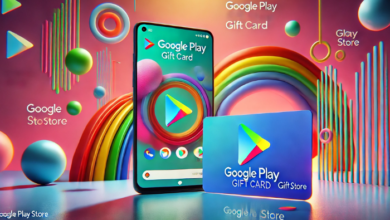
The integration of cryptocurrency and mobile numbers is creating a new frontier in digital communication, offering enhanced security, privacy, and utility in today’s connected world. With the advent of blockchain technology and its decentralized capabilities, mobile numbers are being transformed into more secure, versatile, and privacy-focused tools. This article explores how cryptocurrency and blockchain are revolutionizing mobile numbers, why it matters, and what the future holds for this exciting technological convergence.
What Is a “Crypto Better Mobile Number”?
A “crypto better mobile number” refers to the innovative use of blockchain technology and cryptocurrency to enhance the traditional mobile number system, making it more secure, private, and versatile. This concept aims to address the current vulnerabilities of mobile numbers, such as hacking, SIM-swapping, privacy concerns, and the centralization of control by telecom companies. By integrating blockchain technology, mobile numbers can be managed, verified, and protected in a decentralized, tamper-proof way.
In essence, cryptocurrency-backed mobile numbers offer:
- Enhanced Security: Blockchain ensures that mobile numbers are protected from attacks such as SIM-swapping, which is a common threat today.
- Greater Privacy: Users maintain control over their data and can communicate without revealing personal information.
- Decentralized Identity: Mobile numbers can be linked to decentralized identifiers (DIDs), providing a secure way to authenticate identity without relying on centralized entities.
- Global Accessibility: Crypto mobile numbers enable easy cross-border communication and transactions, especially in regions with limited traditional financial infrastructure.
The Role of Blockchain in Mobile Number Security
One of the key features of blockchain technology is its ability to create a decentralized and immutable ledger, which makes it ideal for securing mobile numbers. Here’s how it works:
1. Decentralized Identity (DID)
Decentralized identity (DID) systems provide users with control over their personal data, including their mobile numbers, through the use of cryptographic keys. Instead of relying on a centralized authority, such as a telecom provider, blockchain allows users to create and manage their identities in a decentralized manner.
- Self-Sovereign Identity: In a blockchain-enabled mobile number system, users own and control their digital identities. These identities can be verified across multiple platforms without disclosing unnecessary personal data. With self-sovereign identity, only the individual can make changes or authorize actions using their mobile number.
- Reduced Vulnerability to SIM-Swapping: SIM-swapping is a type of fraud where hackers transfer a victim’s mobile number to a different SIM card, gaining access to personal information and online accounts. By linking mobile numbers to a cryptographic key on a blockchain, SIM-swapping becomes nearly impossible. The user’s private key is required to authorize any changes, adding a robust layer of security.
2. Encrypted Communication Channels
Blockchain technology can also be used to encrypt communication tied to mobile numbers. Traditional mobile networks rely on centralized infrastructure that can be vulnerable to hacking, surveillance, or data breaches. Blockchain’s decentralized nature provides a more secure foundation for communication.
- End-to-End Encryption: Blockchain can ensure that all communication is encrypted from end to end, meaning that only the sender and receiver can access the information. This prevents any third parties, including telecom providers or hackers, from eavesdropping on conversations.
- Smart Contracts for Secure Messaging: Smart contracts are self-executing contracts with the terms of the agreement directly written into code. In the context of mobile communication, smart contracts can facilitate secure messaging systems that automatically execute actions based on pre-defined conditions. For example, a smart contract could ensure that only the intended recipient can decrypt a message, adding an additional layer of privacy.
3. Crypto-Based Two-Factor Authentication (2FA)
Two-factor authentication (2FA) is a common method for securing online accounts by requiring a second form of verification in addition to a password. However, traditional 2FA methods, which often rely on SMS codes sent to a mobile number, can be vulnerable to SIM-swapping and other attacks. Blockchain-based mobile numbers can significantly improve 2FA security.
- Cryptographic Proof: Instead of relying on SMS-based codes, crypto-enabled mobile numbers can use cryptographic signatures to verify a user’s identity. This eliminates the need for centralized telecom providers to send verification codes and significantly reduces the risk of hacking.
- Decentralized 2FA Solutions: Blockchain technology allows for decentralized 2FA, where the second factor of authentication is managed through a blockchain network rather than a central authority. This method ensures that no single point of failure can compromise a user’s security.
The Benefits of Crypto Better Mobile Numbers
The convergence of mobile numbers and cryptocurrency offers a range of benefits, from improved security to enhanced privacy. Below are some key advantages:
1. Increased Privacy and Anonymity
Mobile numbers are often tied to personal information and can be used to track a person’s activities online. With blockchain-based mobile numbers, users can maintain greater privacy by using decentralized identities (DIDs) that do not require revealing personal information.
- Private Communication: Blockchain enables secure, private communication between users without the need to reveal their phone numbers or other identifying details. This can be particularly useful for whistleblowers, activists, or anyone concerned about surveillance.
- Anonymous Transactions: Cryptocurrency transactions linked to mobile numbers can be conducted anonymously, preserving the user’s privacy. This is especially important in regions where financial privacy is limited by government oversight.
2. Global Accessibility
One of the most significant benefits of blockchain technology is its borderless nature. Cryptocurrency and blockchain-based mobile numbers enable users to access secure communication and financial services from anywhere in the world, without the need for traditional financial or telecom infrastructure.
- Cross-Border Transactions: With crypto-enabled mobile numbers, users can easily send and receive payments across borders, without the need for expensive remittance services. This can be particularly beneficial for migrant workers or those in countries with unstable currencies.
- Financial Inclusion for the Unbanked: In many parts of the world, people do not have access to traditional banking services but do have access to mobile phones. By linking crypto wallets to mobile numbers, blockchain technology can provide financial services to the unbanked, enabling them to participate in the global economy.
3. Protection Against Fraud and Identity Theft
In today’s hyperconnected digital landscape, fraud and identity theft have become major threats to both individuals and organizations. From SIM-swapping to phishing schemes, cybercriminals are continuously finding ways to exploit vulnerabilities in traditional mobile number systems, leading to significant financial and personal data losses. Blockchain-based mobile numbers offer a groundbreaking solution by incorporating cryptographic methods that make it exponentially harder for malicious actors to compromise these numbers.
Fraud Prevention Through Immutable Ledgers
One of blockchain’s most powerful features is its immutable, transparent ledger, which makes tampering with data virtually impossible. Each transaction or piece of data recorded on a blockchain is time-stamped and secured by cryptographic hash functions. Once a mobile number is registered on the blockchain, any attempt to alter the associated data would require an overwhelming amount of computational power, rendering traditional fraud attempts ineffective. This ensures that ownership of a mobile number remains with its rightful user, and any unauthorized attempts to transfer or modify it are instantly flagged and rejected.
- Immutable Ownership: Blockchain’s decentralized architecture guarantees that no single entity controls the entire ledger. When a mobile number is secured through blockchain technology, ownership details are recorded immutably. No individual or hacker can modify the number’s records or ownership without the approval of the legitimate owner.
- End-to-End Encryption: Communications, calls, or transactions linked to a blockchain-based mobile number are encrypted and recorded in real time. This prevents attackers from intercepting communications or tampering with the digital signature tied to the number.
Combatting SIM-Swapping with Cryptographic Signatures
One of the most widespread types of mobile-related fraud today is SIM-swapping. This occurs when cybercriminals trick telecom providers into transferring a user’s mobile number to a different SIM card, allowing them to bypass SMS-based two-factor authentication (2FA) systems and gain access to sensitive accounts, such as bank accounts or cryptocurrency wallets. The consequences of SIM-swapping are often disastrous, with victims losing control of their digital assets, email accounts, and personal information in a matter of minutes.
By utilizing blockchain technology, mobile numbers are linked to unique cryptographic keys, which drastically reduce the likelihood of successful SIM-swapping attacks. In a blockchain-enabled system, ownership and control over a mobile number are not dependent on a telecom provider, but rather on the cryptographic signatures verified by the decentralized blockchain network.
- Decentralized Control: With blockchain, mobile numbers are no longer centrally managed by telecom operators, which eliminates the risk of social engineering attacks aimed at these providers. Instead, the user holds control of their mobile number via their private cryptographic key. This means that hackers would not only need to compromise the telecom provider but would also need access to the user’s private key—a near-impossible task due to the cryptographic security measures in place.
- Multi-Layer Authentication: Blockchain also allows for multi-layered security protocols. Beyond the typical username-password combinations, blockchain-based systems can integrate multiple factors of authentication (MFA), such as biometric data or additional cryptographic signatures, to ensure that only the authorized user can access or make changes to the mobile number.
Identity Theft Protection through Decentralized Identity (DID)
Identity theft is a rampant issue in the digital age, where personal information can be stolen and used to commit fraud or gain access to private accounts. The traditional mobile number system often plays a central role in verifying identity, particularly for services such as banking, social media accounts, and e-commerce platforms. Unfortunately, this reliance on mobile numbers leaves individuals vulnerable to identity theft, as hackers only need access to the mobile number to reset passwords or authenticate sensitive actions.
Blockchain-based mobile numbers offer a revolutionary solution to identity theft by enabling the use of decentralized identities (DID). In a DID system, users have full control over their identity, and no centralized authority (such as a telecom company or government agency) has the power to control or alter it. The mobile number becomes one component of a broader, self-sovereign digital identity that can be used to authenticate identity across various platforms.
- Self-Sovereign Identity: Blockchain’s decentralized nature allows users to maintain ownership over their personal data, including their mobile number. This self-sovereign identity model ensures that only the rightful owner can authorize access or changes to their identity data. Unlike traditional systems, where users must rely on third parties to manage and protect their identities, blockchain empowers individuals to secure their own identities through cryptographic methods.
- Selective Disclosure: One of the key advantages of DID systems is the ability to use selective disclosure, meaning users can choose to share only the necessary information for a specific transaction or interaction. For example, when signing up for an online service, the user might only disclose their mobile number without revealing other personal details. This minimizes the amount of data exposed to potential hackers, significantly reducing the risk of identity theft.
Comprehensive Fraud Defense: Smart Contracts and Blockchain Auditing
In addition to protecting mobile numbers, blockchain offers advanced fraud-prevention tools through the use of smart contracts and blockchain auditing. Smart contracts are self-executing contracts with the terms of the agreement directly written into code. These contracts can be used to automate actions related to mobile numbers, such as number transfers, payments, or even updating account details. Because smart contracts operate on a decentralized network, they eliminate the need for intermediaries and reduce the potential for fraud.
- Automated Security Protocols: Smart contracts can be programmed to require multiple layers of verification before a mobile number can be transferred or altered. For example, a smart contract could require biometric verification or confirmation from multiple blockchain nodes before executing a change. This ensures that fraudsters cannot make unauthorized changes to mobile number records.
- Real-Time Auditing: Blockchain’s transparent and traceable nature allows for real-time auditing of all transactions associated with a mobile number. If any suspicious activity occurs, the blockchain network can instantly identify and flag it. This provides an additional safeguard against fraud, as any anomalies in the mobile number’s transaction history can be immediately investigated and resolved.
Enhanced Legal and Regulatory Compliance
In many jurisdictions, telecom companies are subject to strict regulations related to consumer privacy and fraud prevention. By adopting blockchain-based mobile numbers, organizations can strengthen their compliance with these regulations. Blockchain’s auditable, transparent, and secure ledger can help companies demonstrate compliance with anti-fraud measures, Know Your Customer (KYC) protocols, and data privacy laws.
- Regulatory Reporting: Blockchain’s immutable record of transactions makes it easier for organizations to comply with regulatory reporting requirements. All changes to mobile number records can be documented in real time, ensuring full transparency and traceability for auditors.
- Consumer Protection: Blockchain provides an extra layer of protection for consumers, ensuring that their mobile numbers—and the personal information tied to them—are secure from fraud. This can lead to higher consumer trust in telecom companies and service providers that offer blockchain-based solutions.
Use Cases for Crypto-Linked Mobile Numbers
The integration of crypto and mobile numbers has a wide range of applications, many of which are still emerging. Here are some potential use cases:
1. Secure Mobile Payments
Crypto-linked mobile numbers can be used to facilitate secure, fast, and low-cost payments. Users can send and receive cryptocurrency using their mobile numbers, making transactions as simple as sending a text message.
- P2P Payments: Peer-to-peer (P2P) payments are becoming more popular in the crypto space. By linking mobile numbers to crypto wallets, users can send money to friends or family without the need for intermediaries.
- Retail Payments: In the future, mobile numbers could be used to make purchases in brick-and-mortar stores or online, with the transaction being verified and recorded on the blockchain.
2. Decentralized Communication Platforms
New decentralized communication platforms are emerging that allow users to communicate without relying on centralized servers. These platforms use blockchain to verify users and encrypt messages, ensuring that communication is both secure and private.
- Blockchain Messaging Apps: Several blockchain-based messaging apps are already in development, offering secure, decentralized communication. By linking mobile numbers to these apps, users can benefit from enhanced privacy and security.
- Voice and Video Calls: Blockchain technology can also be used to secure voice and video calls, ensuring that conversations cannot be intercepted by third parties.
3. Identity Verification for Online Services
Many online services require identity verification, such as social media platforms, e-commerce sites, and financial institutions. Blockchain-based mobile numbers can provide a secure and decentralized method of verifying identity.
- Decentralized KYC: Know Your Customer (KYC) regulations require financial institutions to verify the identity of their customers. By using blockchain, mobile numbers can be linked to a decentralized identity that meets KYC requirements without compromising user privacy.
- Login Without Passwords: Blockchain-based mobile numbers could enable users to log into online services without the need for passwords. Instead, a cryptographic signature would verify the user’s identity, reducing the risk of account breaches.
Challenges and Future Developments
While the integration of crypto and mobile numbers offers many benefits, there are also challenges to overcome. Here are some potential obstacles and future developments:
1. Regulatory Hurdles
The regulatory landscape for cryptocurrency and blockchain technology is still evolving. Governments around the world are grappling with how to regulate these new technologies, and mobile numbers linked to crypto wallets may face additional scrutiny.
- KYC and AML Compliance: Financial institutions are required to comply with Know Your Customer (KYC) and Anti-Money Laundering (AML) regulations. Blockchain-based mobile numbers will need to navigate these regulatory requirements while maintaining user privacy.
2. User Adoption
For crypto-linked mobile numbers to become mainstream, widespread adoption is necessary. This will require education and user-friendly platforms that make it easy for people to understand and use blockchain technology.
- User Education: Blockchain can be complex, and many users may be hesitant to adopt crypto-based mobile numbers without a clear understanding of the benefits and how it works. Simplifying the user experience will be key to driving adoption.
Conclusion
The integration of cryptocurrency and mobile numbers is poised to revolutionize digital communication, offering enhanced security, privacy, and global accessibility. Blockchain technology provides a decentralized, secure, and private way to manage mobile numbers, enabling users to take control of their digital identities and communication. While there are challenges to overcome, the future of crypto-linked mobile numbers is bright, and we are only beginning to scratch the surface of what’s possible in this exciting new frontier.





